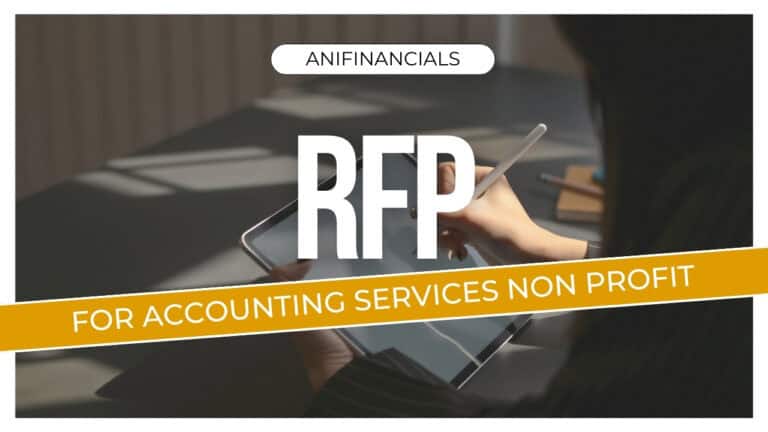How Do Accountants Manage Financial Audits?
If you’ve ever wondered how accountants manage financial audits, you’re in the right place. Let’s dive into the world of financial audits and explore how accountants keep everything in check.
What is a Financial Audit?
A financial audit is a thorough examination of a company’s financial statements, aimed at ensuring accuracy and compliance with accounting standards. It’s like a health check-up for your finances, making sure everything is in order and identifying any material misstatements in the financial statements.
Why Are Financial Audits Important?
Financial audits are crucial for maintaining the financial health of a company. They ensure that the company’s financial statements accurately reflect its financial positioning and performance. This helps build trust with investors, creditors, and other stakeholders. Plus, it’s a way to stay on the good side of regulators and the Internal Revenue Service (IRS).
Role of Accountants in Financial Audits
Accountants are the unsung heroes in financial audits. They meticulously review financial records, verify data, and ensure compliance with laws and regulations. Here are some of their key responsibilities:
- Preparing for a Financial Audit: Gathering all necessary financial information and documents.
- Risk Assessment: Identifying areas with a higher risk of material misstatement.
- Audit Testing and Procedures: Conducting various tests to verify the accuracy of financial data.
- Review and Analysis: Analyzing the financial statements and ensuring they comply with accounting standards.
Skills Required for Conducting Audits
Being an accountant isn’t just about crunching numbers. It requires a keen eye for detail, strong analytical skills, and a thorough understanding of accounting standards. Certified Public Accountants (CPAs) often lead audit teams due to their expertise and certification.
Types of Financial Audits
Accountants handle different types of financial audits, each serving a unique purpose:
- Internal Audits: Conducted by the company’s internal audit team to evaluate internal controls and processes.
- External Audits: Performed by independent auditors to provide an unbiased opinion on the financial statements.
- Forensic Audits: Focused on detecting fraud and financial misconduct.
- Compliance Audits: Ensure the company adheres to laws and regulations.
- Operational Audits: Assess the efficiency and effectiveness of business operations.
The Audit Process
The audit process is a systematic approach that involves several stages:
- Planning and Preparation
This initial phase involves understanding the business, setting audit objectives, and developing an audit plan. Accountants gather all necessary documents like income statements, balance sheets, and cash flow statements.
- Risk Assessment
Accountants assess the risk of material misstatements in the financial statements. This helps them focus on high-risk areas during the audit.
- Internal Control Evaluation
Evaluating the effectiveness of internal controls is crucial. Strong internal controls reduce the risk of errors and fraud.
- Audit Testing and Procedures
Various tests and procedures are performed to verify the accuracy and completeness of financial data. This includes substantive tests and analytical procedures.
- Documentation and Evidence Gathering
Accountants gather evidence to support their findings. This includes invoices, receipts, and other financial records.
- Review and Analysis
The collected data is reviewed and analyzed to ensure it aligns with the financial statements.
- Reporting Findings
Finally, the audit findings are compiled into an audit report. This report can be unqualified (clean), qualified, adverse, or a disclaimer of opinion, depending on the audit results.
Audit Standards and Regulations
Several standards and regulations govern the audit process, ensuring consistency and reliability:
- Generally Accepted Auditing Standards (GAAS): A set of guidelines for auditors.
- International Standards on Auditing (ISA): Global standards for auditing.
- Sarbanes-Oxley Act (SOX): U.S. law aimed at enhancing corporate accountability.
- Public Company Accounting Oversight Board (PCAOB) Standards: Oversight and standards for public company audits.
- Governmental Auditing Standards (Yellow Book): Standards for government audits.
How Do Accountants from A&I Financials Manage Your Financial Audits?
At A&I Financials, our accountants handle your financial audits with unparalleled precision and expertise. We follow a meticulous process designed to ensure accuracy, compliance, and financial health for your business. Here’s how we do it:
- Initial Consultation: We begin with a comprehensive consultation to understand your business needs and audit requirements.
- Document Gathering: Our team collects all necessary financial documents, including income statements, balance sheets, and cash flow statements.
- Risk Assessment: We identify and assess areas with a higher risk of material misstatement to focus our efforts effectively.
- Internal Control Evaluation: Evaluating your internal controls helps us understand your financial processes and pinpoint potential weaknesses.
- Audit Testing: We conduct rigorous tests and procedures to verify the accuracy and completeness of your financial data.
- Evidence Gathering: Our accountants gather concrete evidence to support audit findings, ensuring all information is backed by solid proof.
- Review and Analysis: Detailed review and analysis of financial statements ensure they comply with accounting standards and regulations.
- Audit Report Preparation: Finally, we compile a comprehensive audit report, clearly communicating our findings and providing actionable recommendations.
With A&I Financials, you can rest assured that your financial audits are managed with the utmost professionalism and dedication, helping you maintain trust with stakeholders and achieve financial excellence.
Audit Tools and Software
Technology plays a significant role in modern auditing. Popular audit software like ACL and IDEA help auditors analyze large datasets efficiently. Data analytics tools are also used to identify trends and anomalies in financial data.
Challenges in Financial Audits
Auditors face several challenges, such as tight deadlines, complex financial transactions, and maintaining auditor independence. Ethical considerations are paramount, and auditors must adhere to strict professional conduct.
Audit Reports
The audit report is the final product of the audit process. It provides an opinion on the financial statements and includes several components:
- Opinion Paragraph: The auditor’s opinion on the financial statements.
- Basis for Opinion: Explanation of the audit procedures and standards followed.
- Key Audit Matters: Significant issues identified during the audit.
- Management and Board of Directors: Their responsibilities in the financial reporting process.
Role of Internal Controls
Internal controls are essential in preventing and detecting errors and fraud. They include measures like segregation of duties, authorization of transactions, and regular reconciliations.
Fraud Detection and Prevention
Audits play a crucial role in detecting and preventing fraud. Common fraud schemes include embezzlement, financial statement fraud, and asset misappropriation. Auditors use various techniques to identify these schemes and recommend prevention strategies.
Audit Documentation
Proper documentation is vital for audit quality. It provides a record of the audit procedures performed and the evidence gathered. Best practices include maintaining organized and thorough documentation.
Continuous Auditing
Continuous auditing is an emerging trend that involves ongoing evaluation of financial data. It uses technology and data analytics to provide real-time insights and enhance audit effectiveness.
Auditor Independence
Independence is crucial for audit credibility. Auditors must avoid conflicts of interest and maintain objectivity. Various safeguards, such as rotation policies and independence checks, help ensure auditor independence.
Audit Quality Control
Quality control standards ensure high-quality audits. Peer reviews and inspections are conducted to evaluate audit practices and adherence to standards.
Audit Ethics
Ethical principles guide auditors in their professional conduct. Integrity, objectivity, and confidentiality are fundamental ethical principles in auditing.
Impact of Audits on Business
Financial audits have a significant impact on businesses. They enhance financial transparency and accountability, boost investor confidence, and provide valuable insights into financial performance and positioning.
Future Trends in Auditing
The auditing field is evolving with emerging trends and technologies. Artificial intelligence and machine learning are transforming audit practices, making them more efficient and effective.
Conclusion
So, how do accountants manage financial audits? Through meticulous planning, thorough testing, and adherence to standards and regulations, accountants ensure that financial audits are accurate and reliable. Their work helps maintain the financial health and integrity of businesses, fostering trust and confidence among stakeholders.
FAQs: How Do Accountants Manage Financial Audits?
Accountants use meticulous testing, cross-referencing, and verification procedures to catch errors and ensure the accuracy of financial statements.
Accountants leverage advanced software like ACL and IDEA, along with data analytics tools, to enhance efficiency and accuracy in audits.
Auditors break down complex transactions into simpler components and apply detailed scrutiny to ensure each part is accurately recorded and compliant.
Yes, auditors are trained to identify red flags and use forensic auditing techniques to detect and prevent fraudulent activities within a company.
A&I Financials ensures auditor independence through strict rotation policies, conflict-of-interest checks, and adherence to professional ethical standards.






